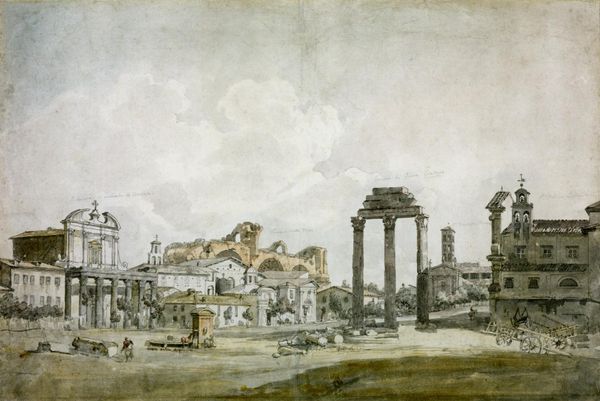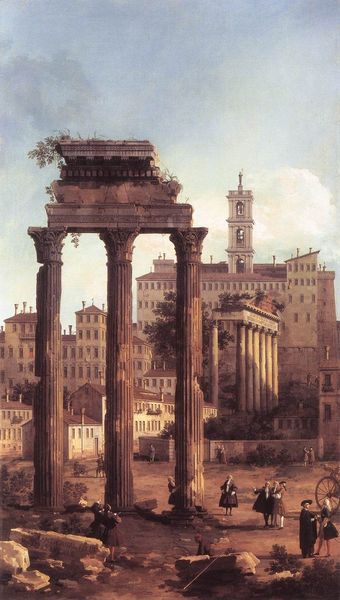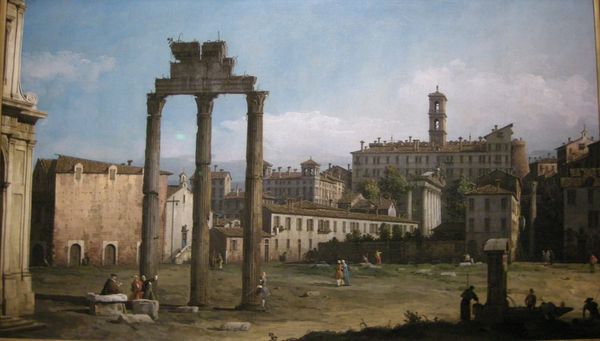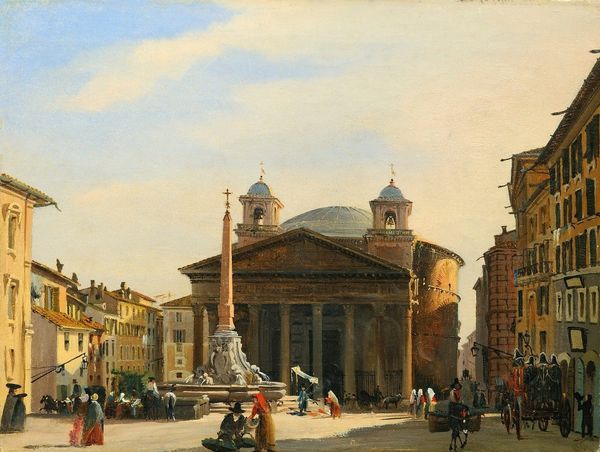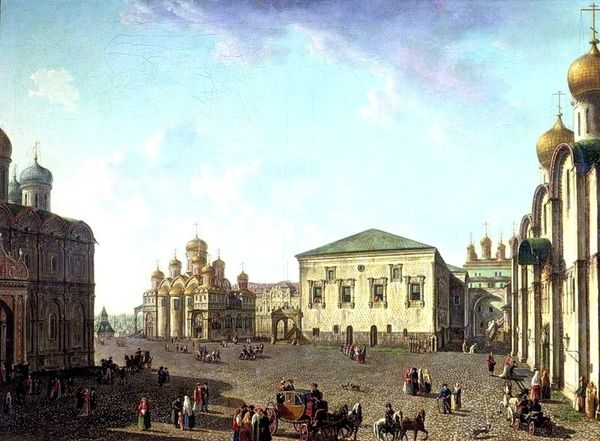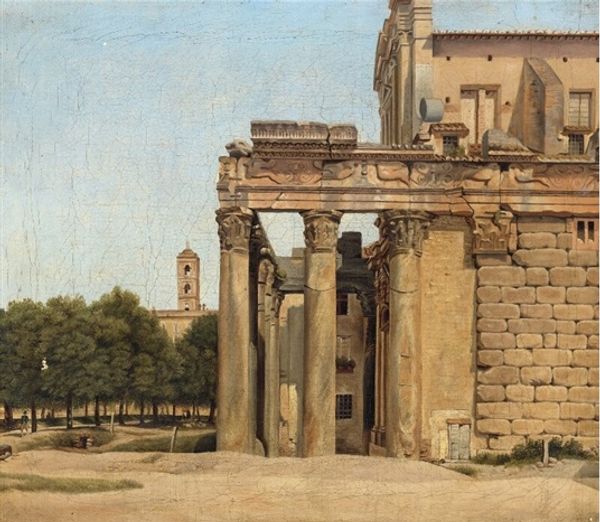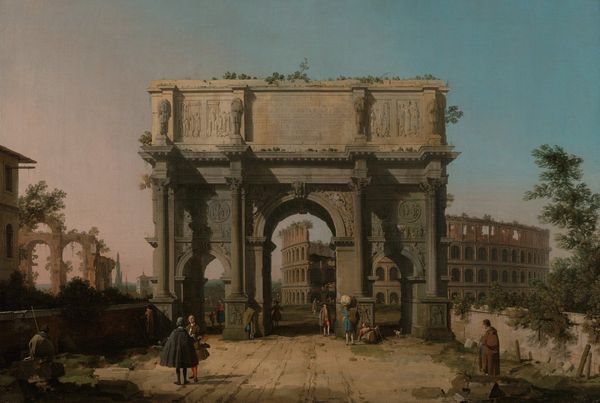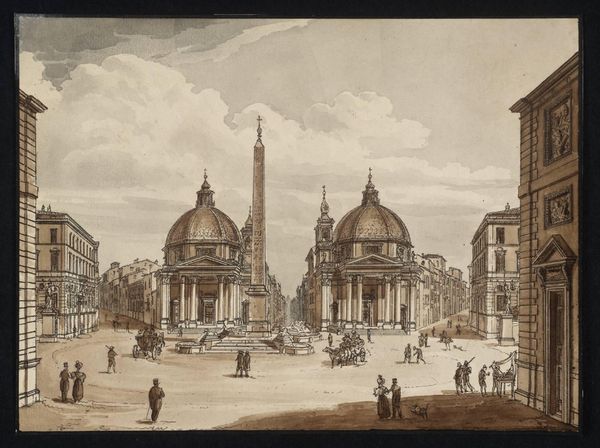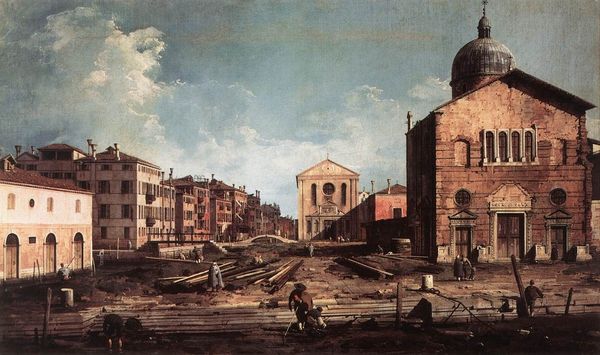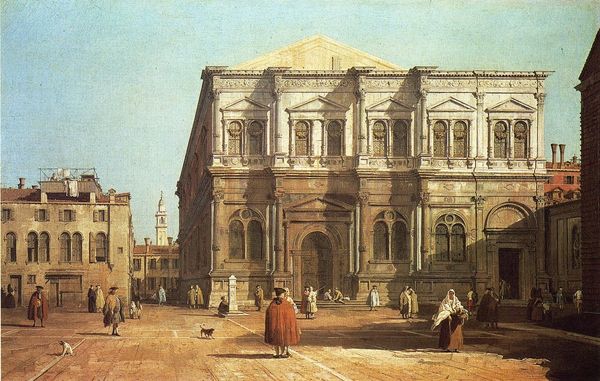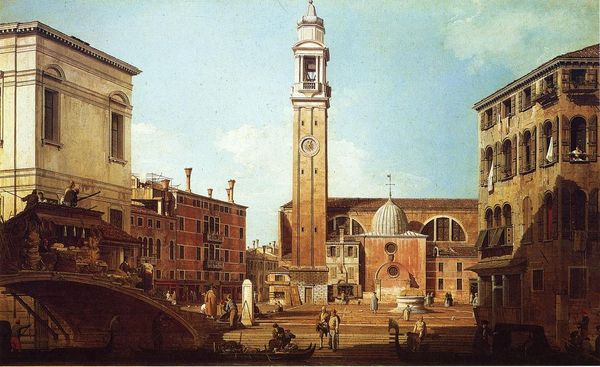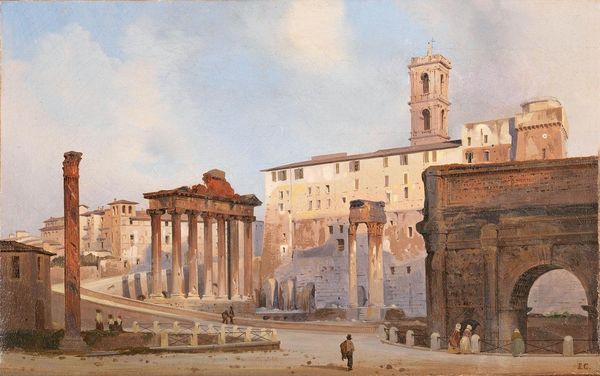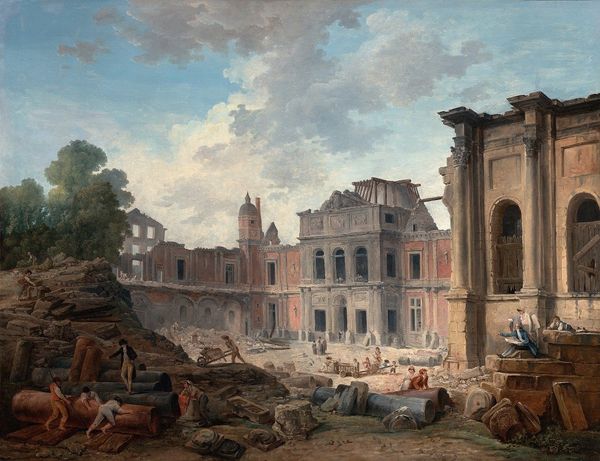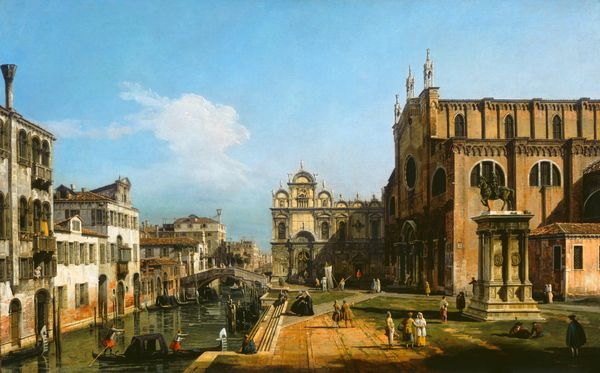
painting, oil-paint
#
neoclacissism
#
painting
#
oil-paint
#
landscape
#
perspective
#
oil painting
#
romanticism
#
cityscape
#
history-painting
#
watercolor
#
realism
Copyright: Public Domain: Artvee
Editor: So, this is Ippolito Caffi's "Rome, a View of the Roman Forum with the Temple of Castor and Pollux," painted in 1843, using oil on canvas. It’s quite a sweeping cityscape! I’m struck by how everyday the scene feels, even with those grand ruins. What do you make of Caffi’s depiction of Rome here? Curator: It's fascinating how Caffi positions the ancient ruins within the everyday hustle and bustle of 19th-century Rome. He’s not just presenting a historical scene; he's showing how the past is lived with and within. Consider how the art world, specifically the market, often valorizes depictions of idealized or dramatic historical moments. What does this relatively ‘normal’ view of Rome suggest about Caffi's intentions and the intended audience? Editor: That’s interesting. Maybe he was trying to show a more authentic view, less for the Grand Tour romantic gaze and more for Romans themselves? Did this type of realistic portrayal have any specific significance during that period? Curator: Precisely. In the 19th century, especially with the rise of nationalism, depicting national heritage became a way to construct a shared identity and legitimate political claims. Paintings like this fostered a sense of connection to a glorious past, but also to a present interwoven with it. Notice how the composition places the viewer at eye level, immersed in the scene. Editor: So it's not just about looking *at* history, but feeling a part of it. I see how Caffi made those grand structures relatable by integrating them into everyday life. Thanks for pointing that out! Curator: Indeed! And by recognizing those techniques, we gain a better understanding of how art served as a tool in shaping social consciousness during times of political transformation and how those socio-political influences guided Caffi's rendering.
Comments
No comments
Be the first to comment and join the conversation on the ultimate creative platform.
